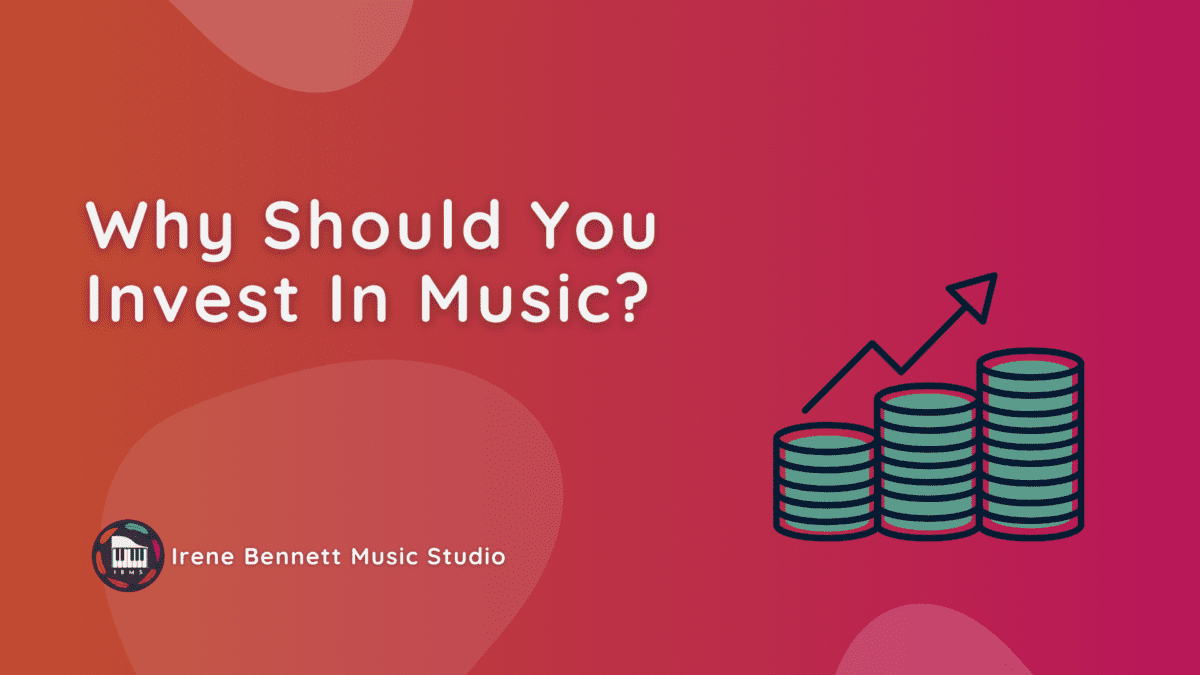I have an observation. Parents are great investors. When they invest in real estate, they expect a return on their money. When they invest in the stock market or in a managed fund, they expect a return on their investment. However, when it comes to kids’ music lessons, some parents have a very curious attitude to investment.
They pay a lot of money for fine instrument. They spend more money on private tuition and books, but when their child says they want to quit, having achieved very little, they simply say, “Hmm, okay.” If the child says he doesn’t feel like practicing, parents give in relatively easily.
They invest. They get little or no return. Yet, the parents seems fairly content.
Why is that?
Sadly, in some cases, the parent simply doesn’t care or is too busy even to notice. But more often, these adult behaviors reflect the fact that the parent almost expected the child to fail from the beginning. They conclude that their child had no talent or just wasn’t very musical. Parents often express this on the phone when they first inquire about lessons. They say, “Well, we’re not really a very musical family. We don’t play anything ourselves, but we’ll see how it goes.” In a funny way, the parents get what they set out to achieve.
The main aim of music education, not to turn every pupil into a professional musician but to enrich people’s lives so that they gain an appreciation for music and can sit down and play for pleasure throughout their lives.
Why do parents enroll their kids in music lessons?
I believe there are lots of different reasons.
Some parents didn’t have the opportunity to learn themselves as children and wish their whole life that they could sit down and play for pleasure. Music is therefore a luxury that they want to give their children as a gift of enrichment.
Other parents took music lessons for a short time in their youth, but it was a mixed blessing. Some of you were turned off music at an early age, by a crabby school teacher who embarrassed you in front of the whole class and told you, you sang flat. She told you you’d never be any good at music. And she was right with death words like that, who would have the confidence to go on? But those devastating and cruel words that crushed you probably had more to do with the teacher’s peptic ulcer than with your potential for music.
Some of your teachers had old fashioned ideas and used very doubtful techniques to inspire and motivate children. Others were downright abusive, wrapping children over the knuckles with a ruler if they made a mistake.
Parents, if this was your experience, then I really want to congratulate you. Despite your own bad memories, you know deep down that music education can unlock the door to a wonderful world of music to the arts and artistic expression that can feed the soul.
The same students that work hard and achieve academically are the very ones that work hard at their music and achieve in that field also.
Enrolling in music lessons does not guarantee great academic achievement
Then there are other parents who believe that there is a correlation between academic achievement and musical accomplishment. They’re not sure if there’s any hard and fast evidence, but at least it seems to be anecdotal. So just in case it’s true, they enroll in music lessons to be sure to get every advantage.
May I say that just enrolling in music lessons is not much value alone.
However, if through daily discipline and careful practice a child learns learns superior hand-eye coordination, learns to read music, cooperates with a team of others in a choir band or orchestra, if the child develops a fine sense of timing and rhythm, melody and harmony, phrasing and musicianship and defined memory, then it is no surprise that these high level skills are transferred to their academic subjects with great advantage. The correlation is there because the same students that work hard and achieve academically are the very ones that work hard at their music and achieve in that field also.
Many parents today learned a bit of music as children. When I survey adults, I find that stacks of adults got up to grade four piano or grade three flute. They did a few years of violin or trumpet, but they did not develop any long lasting usable skills. If we look around the community, there are very few amateur adult players. In other words, lots of them started music, but very few got far enough to be able to continue with music and play for pleasure as adults.
It is little surprise that parents unwittingly reproduce what they themselves experienced as children. That is, they pass onto their children, behaviors of music practice that lead to dropping out. They inadvertently model the behaviors and accept the behaviors that will lead to failure.
How to Succeed in Music
This is a great concern because it seems to me that this is the main aim of music education, not to turn every pupil into a professional musician or concert violinist, but to enrich people’s lives so that they gain an appreciation for music and can sit down and play for pleasure throughout their lives. If all those who learned a bit of violin or flute as children continued through to adulthood, our community orchestras would be overflowing.
This is clearly not the case.
The reality is that most parents dropped out before they got to the stage that they were independent musicians. They weren’t proficient enough to be able to pick up a popular song or a classical piece they loved and play. Often their music reading skills were inadequate.
So if we define success in music as achieving sufficient skill, to be able to continue to play for pleasure as an adult, then few adults succeed in music.
You can only teach someone what you yourself have learned. So it is little surprise that parents unwittingly reproduce what they themselves experienced as children. That is, they pass onto their children, behaviors of music practice that lead to dropping out. They inadvertently model the behaviors and accept the behaviors that will lead to failure. Now, no parent would put it quite like that, but my hunch is that there are some clues here that can unlock this pattern.
*This is Part 1 of a series of articles about how to succeed in music

